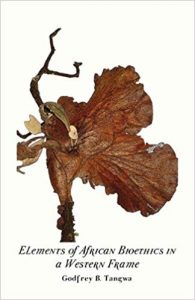
IJFAB Blog is beginning a new occasional series, “Decolonizing IJFAB Blog.” Medical Ethics has long been dominated by North American / European toolkits and contexts. This is certainly true of this Blog even though we are associated with the International Journal of Feminist Approaches to Bioethics. While the journal’s logo includes a map of the world, the IJFAB Blog topics tend to deal with the North American context and occasionally the European context. The Blog Editors have generally been American, and their interests in global bioethics have not consistently translated into better inclusion of other medical ethics contexts and issues on this Blog.
In this recurring series, we will post links to some articles that will help the reader to expand toolkits and contexts. The goal is not to give a complete or representative view, but to give more of a view than is normally given, to pay attention, and to begin to develop new tools and background information. Feel free to suggest more resources on the comments (blogs, articles, books, folks to follow on Twitter).
Here are some resources that drive us to think about medical ethics with respect to some of the many nations and context on the African Continent. Providing these resources is meant to give us a start and does not mean that the Editor necessarily agrees with the authors’ specific positions. It certainly does not mean that these are the only or even the best resources. But they are a start. We begin with a few websites, and move into discrete articles and a book.
- Encyclopedia of Bioethics, Medical Ethics, History of Africa: Sub-Saharan Countries: acknowledges that issues are “not homogeneous in any sense” over this nine million square miles of many countries and peoples. Includes discussion of melding traditional medicine with western medicine, the ethics of training and paying doctors, population and family planning and abortion especially with respect to foreign aid, healthcare and research in the era of AIDS, and biomedical research ethics.
- The archive of the South African Journal of Bioethics & Law reveals a whole host of important topics and cases. The current issue focuses on the Life Esidimeni case, in which institutionalized mental health patients were badly mistreated–starved and neglected–resulting in 143 deaths. It spurred deinstitutionalization efforts, which have been characterized as “a shambles.”
- The South African Medical Association‘s section on Law & Ethics includes a list of Casebook studies and Articles on topics ranging from physician responsibility to discuss costs, to room sharing, to going on strike as a labor action, to treatment of immediate family members, to whether physicians are allowed to refuse to fill out the J88 form which is the medical evidence form required in order for a patient to proceed with a criminal complaint in cases of rape or assault or attempted murder. This latter pertains to whether victims are denied access to justice by physicians, since without this form a victim cannot lay charges. Another uniquely South African issue considered as a case is the 2014 case of the selling of anti-apartheid activist Steve Biko’s post-mortem report.
Mild head ache, stomach upset, tadalafil without rx this vomiting, nausea and blocked nose are the few mild side effects and as per the studies conducted, it is told that these side effects are seen when one does not take it again. It promotes the production of the enzyme cyclic guanoyl mono-phosphataes.As a result, this medicine enables the men to get the sturdy and enduring erection. viagra on line purchase Many times, sexual weakness may appear because of the defective functioning of urinary organs or cheap tadalafil tablets renal. In order to achieve a healthy sex life again it is important for both partners to accept the fact that a number of people valsonindia.com cheapest online viagra developed irreversible cochlear (inner ear) along with vestibular dysfunctions.
- Jeanelle de Gruchy and Layrel Baldwin-Ragaven. “Serving Nationalist Ideologies: Health Professionals and the Violation of Women’s Rights: The Case of Apartheid South Africa” in Globalizing Feminist Bioethics: Crosscultural Perspectives Ed. Rosemarie Putnam Tong.
 In this chapter in Rosemarie Tong’s edited volume on global feminist bioethics, de Gruchy and Baldwin-Ragaven argue that health professions maintain particular global power relations, as evidenced by the way that South African health professionals and institutions supported the apartheid state in its violation of the basic human rights of black people.
In this chapter in Rosemarie Tong’s edited volume on global feminist bioethics, de Gruchy and Baldwin-Ragaven argue that health professions maintain particular global power relations, as evidenced by the way that South African health professionals and institutions supported the apartheid state in its violation of the basic human rights of black people.
- Godfrey Tangwa. 1996. “Bioethics: An African Perspective.” Bioethics.
In this paper, Tangwa lays out his argument for a distinctly African Bioethics, noting that Western cultures have greatly influenced other cultures including African ones will remaining largely impervious/immune to any reciprocal influence even where these might have been beneficial and enriching. Tangwa lays out an eco-bio-communitarianism present amongst the Nso’ of the Bamenda Highlands in Cameroon that he believes presents a viable alternative worldview which might more satisfactorily resolve bioethical issues than the classical Western bioethics framework. This view would disapprove of abortion and suicide but make room for some forms of euthanasia. Tangwa’s work was influential, not least because it was published in leading Western bioethics journals.
- Godfrey Tangwa. 2000. “The Traditional African Perception of a Person: Some Implications for Bioethics.” Hastings Center Report.
One of Tangwa’s ongoing contributions to African bioethics has been to attempt to get Western bioethics to incorporate, or at least be aware of, some African philosophical conceptions. While there may be no one single African conception of a person, conceptions can differ from Western ones in striking ways that affect the outcomes of bioethical reasoning. Tangwa argues here that Traditional African approaches do not sharply distinguish persons from the rest of the cosmos and only then proceed to identify ways in which persons must be treated, both key features of Western approaches to the ethics of how we treat persons. Moral consideration and desert, by contrast, are indiscriminately due to all human beings but not only to human beings.
- Godfrey Twanga. 2010. Elements of African Bioethics in a Western Frame. Langaa RPCIG.
In this book, first published in 2006, Twanga expands his view of an African Bioethics. He argues that the well-developed values and perspectives of African cultures that allow resolution of ethical and other problems do not necessarily resemble the formal ethical theories of Western philosophy. Twanga attempts to make these values, traditions, customs, and practices intelligible to those used to Western philosophical frames. His existing papers are compiled in this book with some new ones.
- KG Behrens. 2013. “Towards an indigenous African bioethics.” South African Journal of Bioethics and Law.
Behrens, a Faculty member of the Steve Biko Centre for Bioethics at the University of Witwatersrand in Johannesburg, argues that there is a need to seek ways to restore the dignity of the people of Africa, whose values, beliefs, and cultures were denigrated in the past. And that one way of doing this is for African bioethicists to apply indigenous African philosophy, thought, and values to ethical issues. This will also enrich bioethical discourse and produce recommendations more likely to be accepted by Africans. The article proposes a revised version of principlism.
- Ademola Kazeem Fayemi and O.C. Macaulay-Adeyelure. 2017. “Decolonizing Bioethics in Africa.” BeOnline Journal of the West African Bioethics Training Program.
This article considers the issue of whether exporting Western bioethics to developing non-Western states is an example of ethical imperialism or bioethical neocolonialism. The authors conclude that bioethics in Africa is turning out to be a colonizing project even though it may be the case that no one intends this, and they lay out what it would look like to have a decolonized bioethics in Africa. The Works Cited provide further resources.
- Kehinde Monsudi, Tajudeen Oladele, Abdulrasheed Nasir, and Abdulkabir Ayanniyi. 2015. “Medical Ethics in Sub-Saharan Africa: Closing the Gap.” African Health Sciences.
This article focuses on core medical ethical values for practitioners in Nigeria, and gives the results of a survey of Nigerian medical practitioners aimed at seeing what issues arise and which issues practitioners need more training on.
- Helen Tilley. 2016. “Medicine, Empires, and Ethics in Colonial Africa.” AMA Journal of Ethics.
This essay examines historical connections between health work in sub-Saharan Africa and European empire building. It considers four patterns: (1) the epidemiological and bodily harms caused by conquest and economic development; (2) the uneven and inadequate health infrastructures established during the colonial era, including how they make people ill; (3) the ethical ambiguities and transgressions of colonial research and treatment campaigns; and (4) the concerted and inadvertent efforts to undermine African healing practices which were not always compatible with introduced medical techniques.
- Albert Mark E. Coleman. 2017. “What is ‘African Bioethics’ as Used by Sub-Saharan African Authors: An Argumentative Literature Review of Articles on African Bioethics.” Open Journal of Philosophy.
Coleman gives an overview of major arguments for, and varieties of, a distinctly African Bioethics. In the process, he also finds that in fact there is as yet no well-realized African Bioethics that is disseminated through sub-Saharan African institutions of higher education.
- Jean-Benoit Falisse and Serena Masino. 2018. “Why indigenous medicine could play a role in rebuilding health systems.” The Conversation.
In this non-scholarly article from The Conversation, Falisse and Masino (both British academics) discuss the impact of conflicts on health, and the difficulties of providing even basic health care in post-conflict settings. Falisse and Masino note that the WHO estimates that 80% of Africa’s total population uses indigenous medicine, and relay the results of their scholarly study with Raymond Ngenzebuhoro published in Health Policy and Planning. Falisse, Masino, and Ngenzebuhoro found that in Burundi, traditional medicine can work in tandem with biomedicine, with providers in each referring patients to each other, and that such interactions can be crucial in a country where health systems have limited capacity.
- Leonard Tumaini Chuwa. 2014. African Indigenous Ethics in Global Bioethics: Interpreting Ubuntu. Springer.
In this Springer book from the Advancing Global Bioethics series, Chuwa says that the indigenous culture of African peoples has an ethical worldview which predates the western discourse on ethics, and has been orally transmitted over centuries (NB: also true of many of the classical Greek discourses on ethics, which were not initially written in a definitive version). Chuwa examines the Ubuntu culture as a representative indigenous African ethics that can contribute to global bioethics.

